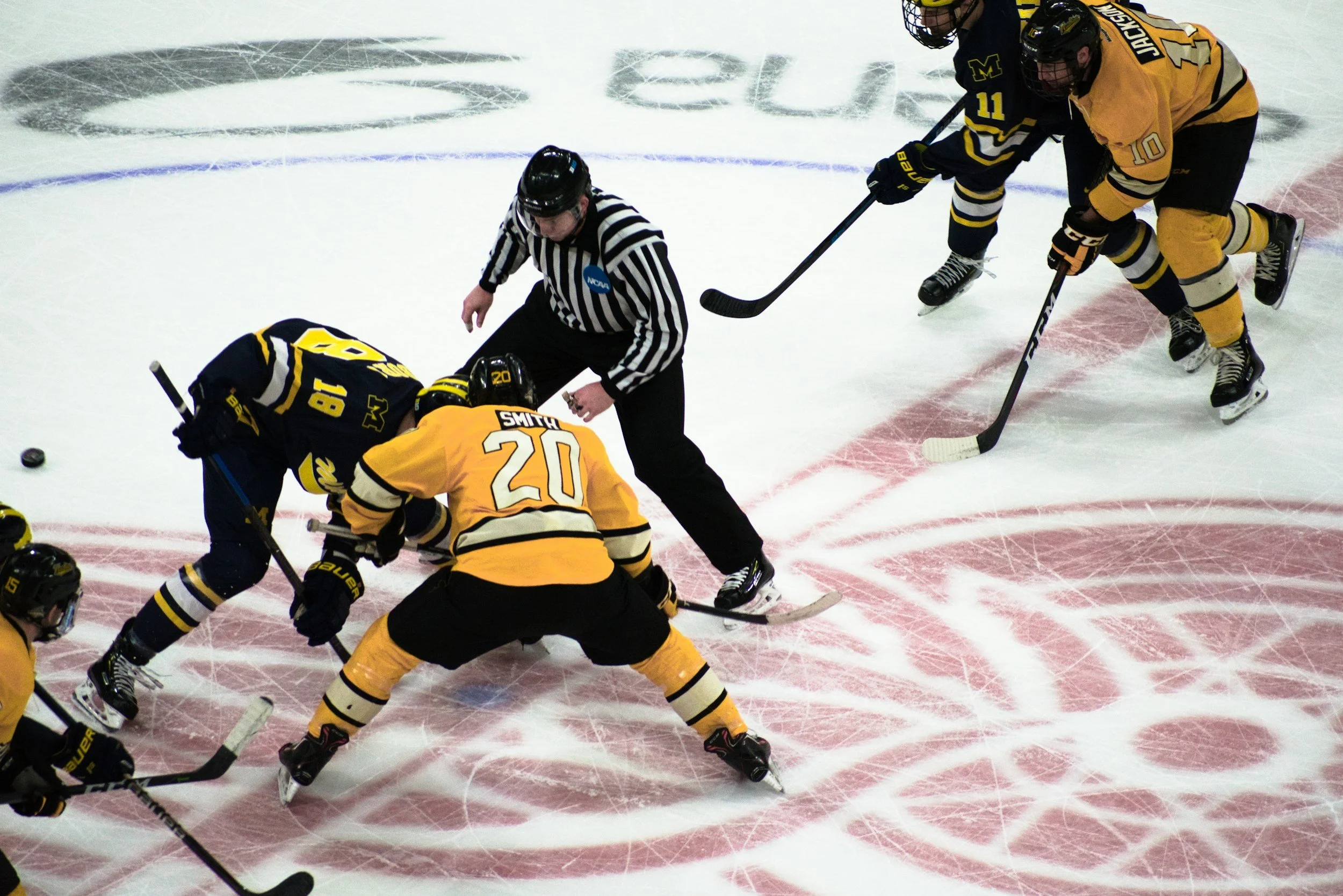Unlocking Peak Performance: How Sports Therapy Can Support Athletes On and Off the Field
Therapy to Enhance Athletic Performance
Welcome and thank you for stumbling onto this blog post. The purpose of this post is to provide you with insight into how therapy can support and even enhance your experience as an athlete. Athlete here is used to describe and encompass anyone who might be pursuing athletic endeavors. Whether you are a 16 year old looking to increase confidence going into hockey tryouts, a college or university athlete, or an athlete hobbyist looking to improve your time in the half-marathon, therapy can be used to enhance your athletic performance, and aid in your overall enjoyment and pleasure in sport.
Why Therapy for Athletes?
There are a number of reasons why athletes pursue therapy. Every athlete's journey is different, and the goal of the work we do together is to tailor sessions to fit your needs. Here is a list of reasons why an athlete might pursue therapy:
1. Increase confidence
Many athletes are looking to take their performance to the next level, whether that be making a specific team, getting noticed by post-secondary scouts, or looking to improve a time standard. Many athletes will experience grief and/or loss over their time in athletics, including not making a team, loss of conditioning, fitness and/or skill related to injuries. Increasing an athlete's confidence can support a sense of mastery in skills, thus increasing performance.
2. Decrease performance anxiety
Many athletes experience performance related anxiety. Anxiety related anxiety can be a debilitating experience for many athletes, often including the following symptoms:
a. Cognitive Symptoms: Persistent worrying, negative self-talk, decreased concentration, problem solving.
b. Emotional Symptoms: Decreased mood, grief, feeling overwhelmed, etc.
c. Physiological Symptoms: Disrupted sleep, nausea, increased heart rate, increased or decreased appetite, etc.
d. Behavioural Symptoms: Increased impulsivity, engaging in coping strategies such as skin picking, increased restlessness or inability to sit still, substance use. e. Interpersonal challenges: Withdrawing from friends, families, teammates and coaches, increased conflict in relationships
3. Overcoming injury
Injuries fall into either an acute or chronic category. Where an acute injury is an injury resulting from an incident, such as a sprain or strain. A chronic injury occurs over a span of time, including but not limited to overuse injuries. Many athletes will experience an injury over the course of their athletic endeavours, and injuries can de-rail training and performance efforts, and can result in decreased mood, impaired sleep and concentration, and lowered confidence.
4. Decrease stress
Being an athlete comes with stress. Stress to perform, stress of time managing work, school and training schedules and financial stressors just to name a few. Stress is disruptive to our nervous systems, and when our nervous systems get stuck on “on” or fight or flight, athletes can experience diminished enjoyment and overall performance in sport. Managing stress is important to create both resiliency and vitality within athletes.
My Therapeutic Approach With Athletes
My approach to working with athletes is first by understanding how they see themselves both within and outside of sport. While being an athlete can be a consuming experience, athletes do not live in a vacuum. It is important that I gain a clear picture on how the person as a whole is functioning. I work from a polyvagal lens which attempts to understand our nervous systems are in constant relation to external stimuli, including demanding training schedules, coach/athlete relationships, and workplace/school demands.
I like to employ interventions such as EMDR and/or Somatic Experiencing as a way of creating sustained change within their nervous system. While athletes will learn new skills and insights as a result of working with me, my focus is rarely on suggesting behavioural changes and/or challenging thought processes. Over the course of doing EMDR and/or Somatic Experiencing with me, athletes will naturally gravitate towards thought processes and behaviours that feel good and natural to their nervous systems, therefore enhancing their experiences as an athlete.
Invest in Your Mental Game
I take an experiential, process based approach to working with athletes, just as I do in supporting other clients. I recommend weekly therapy sessions, and can offer intensive sessions if deemed a good fit for the athlete. If you have any questions, please schedule a Complimentary 15 Minute Consultation and I would be happy to support you.



